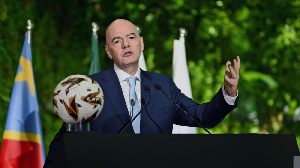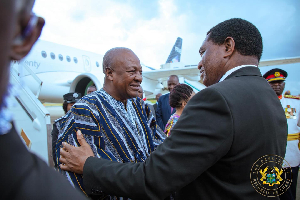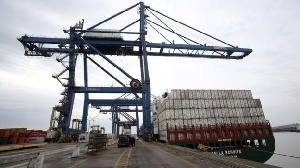The need to integrate the economies of Africa dates back to days of Nkrumah’s rule. Much of the discussions then were smeared with political colorization which stifled the initiation and progress of Africa unity. The formation of the CFA zone for French speaking countries using the West African Franc as a common currency sparked renewed passion towards the adoption of more proactive, identical and common structures to enhance the overall economic improvement in Africa. Subsequently, various blocks including the East African Community and the English speaking West Africa countries conceived and nurtured the idea of a common currency to harmonize regional growth and development. The birth of ECO in the case West Africa, ignited deep passion beyond what it can practically achieve. The long run goal, as many have posited, will be for the various blocks merging to create the united states of Africa as Nkrumah dreamt of which ostensibly requires a strong micro foundation of the individual units. As demonstrated by the signatories of ‘ECO’, the biggest challenge is meeting the minimum threshold as outlined in the document.
A glance of the four primary criteria reveals significant semblance to the Maastricht Treaty requirement of the Euro zone in a way some may describe as ‘copy and paste’. The very first primary criterion, reduction in budget deficit to a GDP ratio a maximum of 3%, is exactly the same (verbatim) as specified in the Euro zone. The rest of the convergence criteria require member countries to reduce the central bank deficit financing to a ceiling of 10% of a previous year’s fiscal revenue, maintain a single digit inflation rate and gross reserves to cover at least 6 months of import which are not too different from those required to be part of the Euro zone. One therefore wonders if the structural economies of African countries match very well with those in Europe to have warranted this pattern. There are absolutely no qualms about us taking inspiration from well established document particularly when we all aspire for the same goals. To the extent that the Euro itself has not assumed the special place in global financial markets as it was thought of when it was inaugurated in 1999 gives us cause to worry about the success of our own monetary union taking precedence from it.
Be as it may, the criteria also raise fundamental questions as to when the participating countries can meet the criteria. The revision of the effective year of implementation from 2005 to 2009 did very little in the progress towards achieving a common currency, and there is still doubt that the new proposed year of 2015 will be any successful. One would have expected remarkable and significant milestone of fully realizing the objectives by January, 2015 by now. I understand that the issue of time should not be the ultimate consideration. Nevertheless, it is an undeniable fact that an unbounded policy or one with continuous shift has a high chance of failure. Apart from Gambia, the rest of the countries have consistently fallen below the target mark. Ghana which has traditionally been the worst performer has tangentially hit the single digit inflation, and hopefully should be able to sustain and broaden the gains over a period of time.
Nigeria, which is the anchor country given its relative size should have been head-on and playing the leading role in the achievement of the marks. With their recent post election violence coupled with huge debt and other negative macro economic variables, it is very unlikely that it will be any ready by 2015 even though it had earlier on made positive strives in achieving three of the criteria. The question that lingers on is, can we wait eternally to get all countries on board before the rollout? If we are so much inspired by the Euro zone, we might as well kick off with at least three countries and the rest to follow suit whenever they are ready. After all, the Euro zone started with eleven countries and grew to the current membership of seventeen with the latest been Estonia which joined early this year. This could be a way of solving the lack of commitment on the part of participants and facilitate greater efforts to meeting the laid down objectives.
I am very much concerned about arguments that seek to suggest that it is okay for certain requirements in the blueprint to be compromised a little to ensure that all countries ‘make it’. It is important for those people to realize that the very core existence of the zone will very much depend on strict adherence to the criteria. A one inch deviation margin on the part of one single country could send the zone railing to the ground. The cost of such a collapse could spell economic doom for the entire region and spillover into the future.
The prospects of a common currency are great and the challenges are equally high. With more commitment on the part of those that have made great strides, I believe the kickoff date is feasible even though there might be fallout on the part of some member countries due to their inability to meet the criteria by the due date.
Jude Kyoore
judekyoore@gmail.com
Minnesota, USA
Opinions of Saturday, 14 May 2011
Columnist: Kyoore, Jude
Do we ever get to spend ‘ECO’
Opinions













